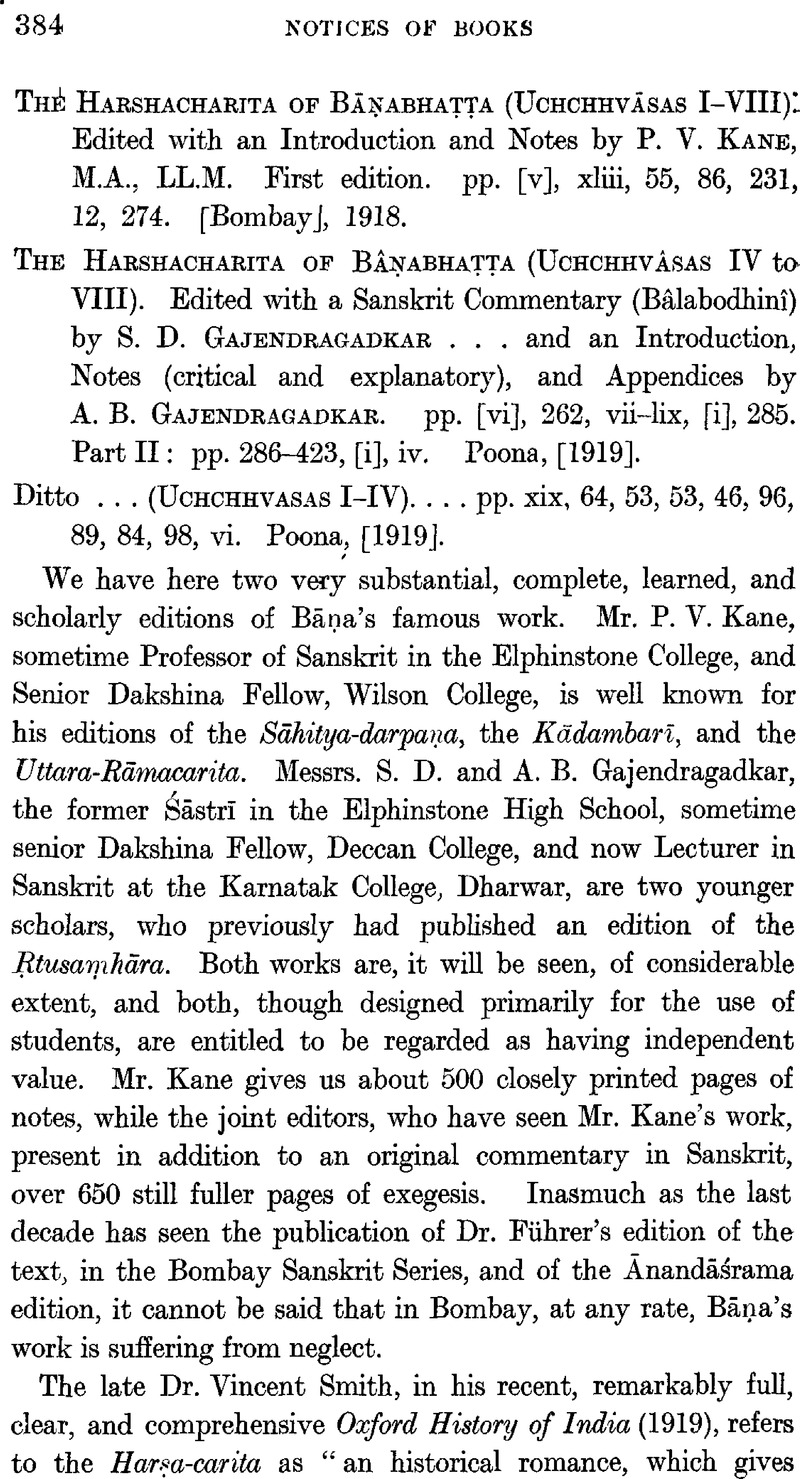No CrossRef data available.
Article contents
The Harshacharita of Bāṇabhaṭṭa (Uchchhvāsas I–VIII): Edited with an Introduction and Notes by P. V. Kane, M.A., LL.M. First edition, pp. [v], xliii, 55, 86, 231, 12, 274. [Bombay], 1918. - The Harshacharita of Bâṇabhaṭṭa (Uchchhvâsas IV to VIII). Edited with a Sanskrit Commentary (Bâlabodhinî) by S. D. Gajendragadkar … and an Introduction, Notes (critical and explanatory), and Appendices by A. B. Gajendragadkar. pp. [vi], 262, vii–lix, [i], 285. Part II : pp. 286–423, [i], iv. Poona, [1919]. - Ditto … (Uchchhvasas I–IV). … pp. xix, 64, 53, 53, 46, 96, 89, 84, 98, vi. Poona, [1919].
Review products
Published online by Cambridge University Press: 15 March 2011
Abstract

- Type
- Notices of Books
- Information
- Copyright
- Copyright © The Royal Asiatic Society 1920
References
page 386 note 1 In the Athenœum, for June 11, 1920 (p. 768) we light upon the following :—
“ Poetry is always written before prose and always in a language as remote as possible from the language of ordinary life. The language and versification of ‘ Beowulf’ are far more artificial and remote from life than those of, say, ‘ The Rape of the Lock.’ The Euphuists were not barbarians making their first discovery of literature ; they were, on the contrary, highly educated. But in one thing they were unsophisticated ; they were discovering prose. They were realizing that prose could be written with art, and they wrote it as artificially as they possibly could, just as their Saxon ancestors wrote poetry. They became intoxicated with their discovery of artifice.”
Ṭhis is exactly the case with Subandhu, whose prose kāvya “brought down the pride of the poets ”.
page 388 note 1 There exist certain Indo-Persian sketches of “The Good Shepherd” which are curious in this respect. The interest of the topic has penetrated even to the strictly intellectual domain of Sanskrit logic, as witness the syllogism (arthāpatti, “consequence”) “the fat Devadatta does not eat by day : therefore he eats at night” (a serious fault).


